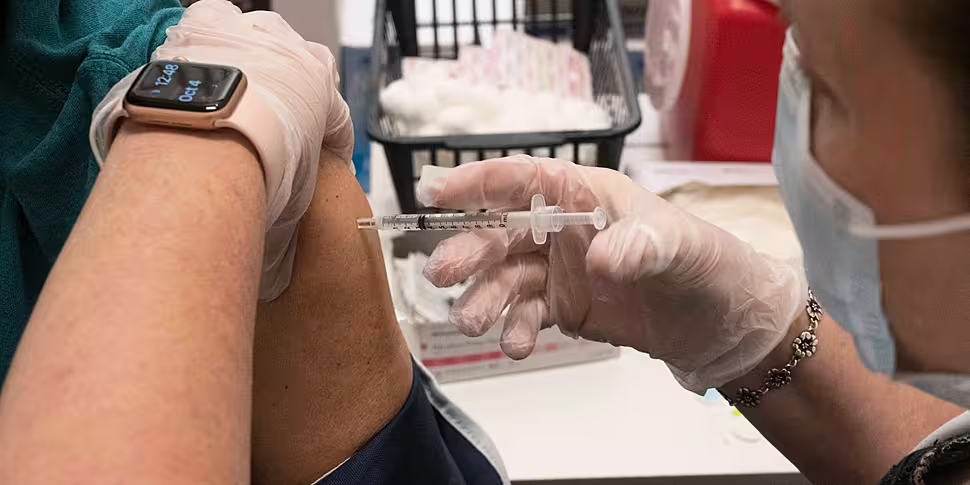Mass boosting the general population to protect against coronavirus infection is set to fail.
That's according to Paul Moynagh, professor of immunology and director of the Kathleen Lonsdale Institute for Human Health research at Maynooth University.
He was speaking as COVID-19 cases continue to surge here and across Europe.
Prof Moynagh told Newstalk Breakfast the current vaccines weren't designed for this.
"The reality is the virus is staying here, it's mutating all the time, we're getting new variants coming along.
"I think in terms of mass boosting every four months, I'm not so sure how practical that is.
"I certainly agree in terms of targeting boosting, especially around older age groups and vulnerable age groups.
"We've asked a lot of these vaccines: these vaccines were designed to protect us against serious illness and they're still doing that.
"I think if we continue to boost with the objective in terms of trying to to prevent infection, I think that's going to fail.
"So I think we have to look at new technologies and ask companies to step up to the mark, in terms of - potentially - nasal vaccines.
"The antibodies we tend to focus on in the bloodstream, that's not the primary site of infection: it's in the respiratory system.
"So we need to look at nasal vaccines, where we would get that - what we call - mucosal immunity".
'It's here to stay'
He also says as we head into winter, we need to plan for additional waves.
On any potential mask mandate, Prof Moynagh believes they won't really make a difference.
"I think the high-efficiency ones, like the FFP2 masks, I think they do work and they offer protection.
"But in terms of a quantitative measure, how protective at a population level, I think it'd be difficult to use that as a basis to mandate masks again.
"And remember with the Omicron [variant] last January, masks were mandated at that time - and within the space of about four to six weeks, about half the population got infected.
"We can do things like ventilation, air filtration... I think testing still has some role in terms of when to enter and exit isolation.
"But I think definitely it's here to stay and we have to accept that this is an additional virus now that we have to deal with".









